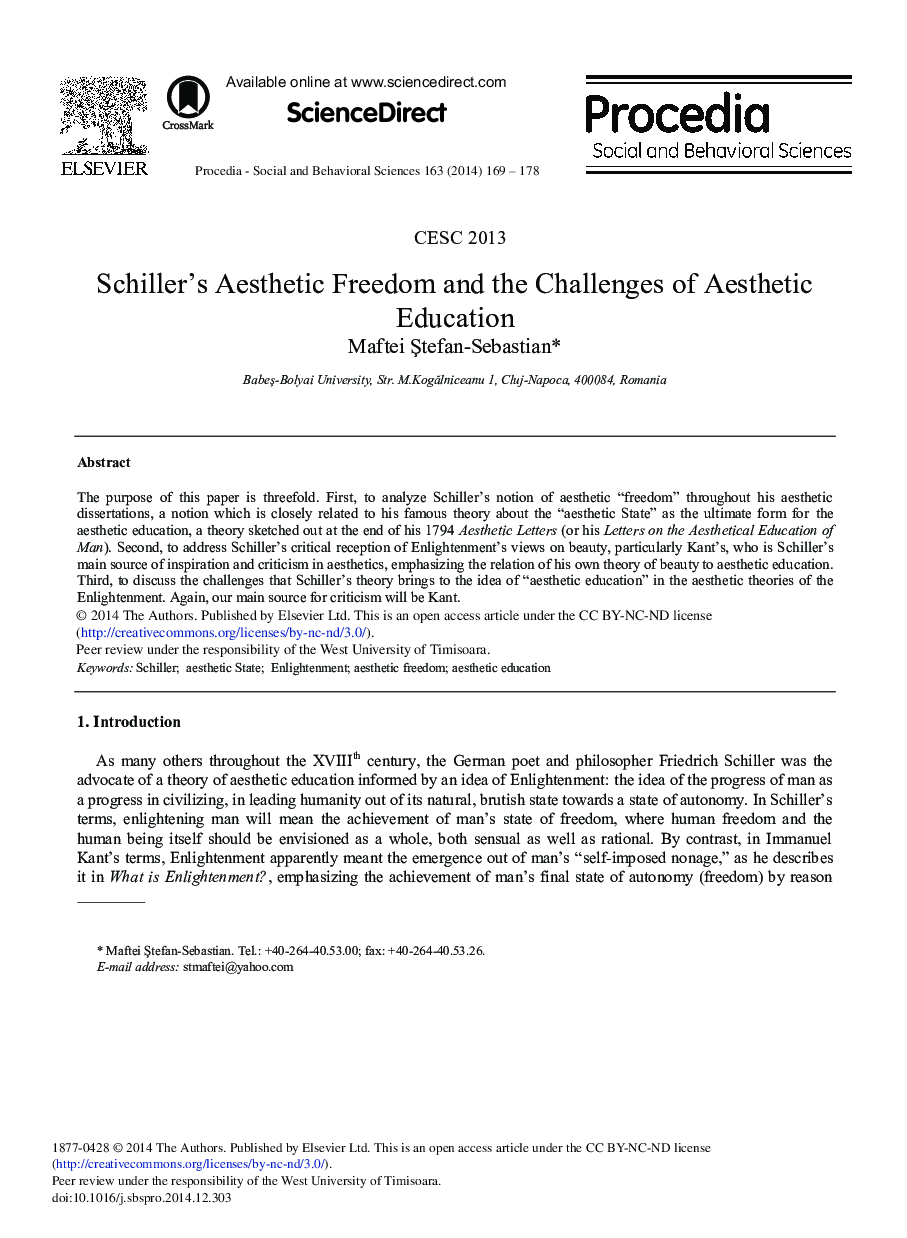| Article ID | Journal | Published Year | Pages | File Type |
|---|---|---|---|---|
| 1112477 | Procedia - Social and Behavioral Sciences | 2014 | 10 Pages |
The purpose of this paper is threefold. First, to analyze Schiller's notion of aesthetic freedom throughout his aesthetic dissertations, a notion which is closely related to his famous theory about the aesthetic State as the ultimate form for the aesthetic education, a theory sketched out at the end of his 1794 Aesthetic Letters (or his Letters on the Aesthetical Education of Man). Second, to address Schiller's critical reception of Enlightenment's views on beauty, particularly Kant's, who is Schiller's main source of inspiration and criticism in aesthetics, emphasizing the relation of his own theory of beauty to aesthetic education. Third, to discuss the challenges that Schiller's theory brings to the idea of aesthetic education in the aesthetic theories of the Enlightenment. Again, our main source for criticism will be Kant.
